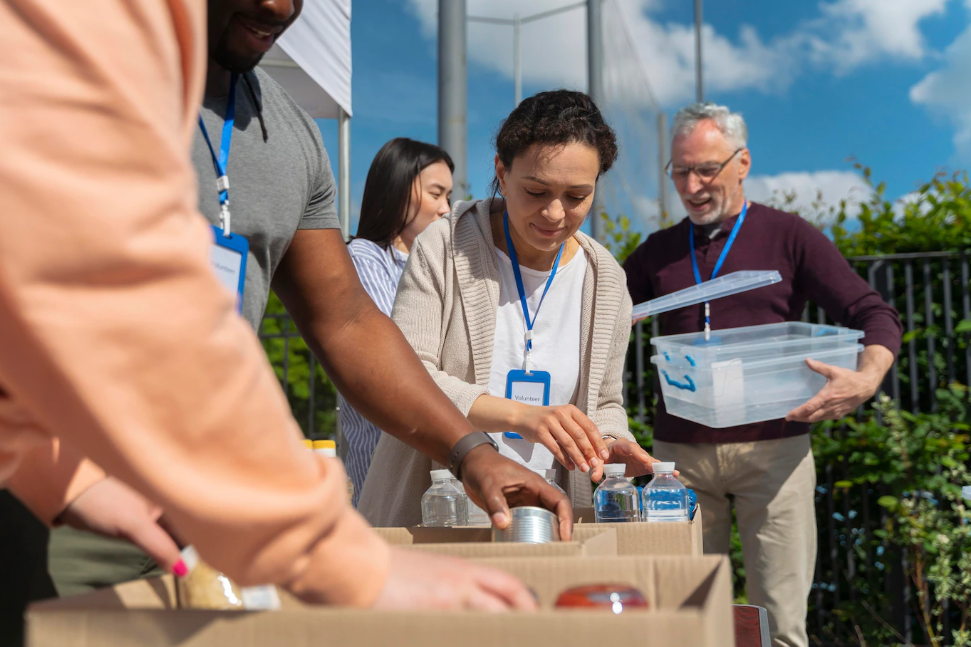Can Confidence Be Learned?
Learn the value of having self-confidence and self-esteem in order to live a happier life.

Selfpause Affirmation App
Download the app to get 1,000’s of affirmation meditations and everything you need to write, record and listen to your own.
Having confidence and self-esteem are important to all of us. However, not all of us have the same level of confidence, and some people have a difficult time finding it. Fortunately, there are ways to gain confidence in a matter of minutes.
Self-esteem Vs Confidence

Whether you’re an adult, a college student, a teenager, or a child, you should know how to build self-esteem and confidence. A healthy sense of self enables you to take risks and enjoy a fulfilling life.
Self-esteem is defined as an emotional appraisal of your value. It has a huge influence on your decision-making process and overall well-being. It can help you stay focused on your goals and motivate you to reach them. It can also guide you in solving problems. It is a moral framework that affects your interactions with the world and other people.
Self-esteem is a result of the experiences you have in life. It can also be influenced by factors outside your control. For instance, racism and discrimination can cause a negative effect on your self-esteem.
You should try to build self-esteem and confidence by actively pursuing your goals and dreams. You should also recognize and appreciate your strengths. Try to find a group of people who support you.
You can also build your self-esteem by practicing self-talk. If you find yourself having a negative or pessimistic thought, try to replace it with a positive thought. Write down three things you appreciate about yourself.
Having high self-esteem and confidence also means that you’re willing to take risks and accept challenges. You also accept criticism and learn from it. In a healthy relationship, you don’t take criticism personally.
You’re also more likely to enjoy a healthy lifestyle. You care for your health, environment, and community.
When you have self-esteem and confidence, you don’t have to make up a story about your achievements. You don’t have to be the best at anything. Having a long list of accomplishments is not enough. You should also try to measure yourself against your progress.
Helping Others

Whether it’s helping a coworker move into a new office, holding the door for someone, or simply saying “thank you”, helping others is a great way to improve your life. Studies have shown that it can improve your mood, boost your confidence, and improve your overall health.
You might be asking, “What does helping others really mean?” Helping others is the act of giving to another person without expecting anything in return. It can be as simple as holding a door open for someone, or it can be as large as starting a global nonprofit organization.
Although there are many benefits to helping others, the most important is that it helps you improve your own life. By helping others, you can learn new skills and build stronger relationships. This can help improve your health, increase your productivity, and boost your sales.
It can also help you learn about the world around you. You might learn about the hardships of others, and become inspired to help others yourself. Similarly, you may also learn to better manage your own stress. If you are a bank teller, for instance, you might choose to help organize an event for a local charity. This can help you improve your customer service and show that you care.
The most obvious benefit of helping others is that it makes you happier. Helping others makes you feel better about yourself, and gives you a sense of purpose. You’ll find that you are more likely to make good decisions, and will be less likely to become depressed. In fact, helping others can even help you live longer.
The best part about helping others is that it is a great way to meet new people. You’ll probably meet people who have similar values, and this can lead to new friendships and professional connections. You might even find that these new connections turn into mentors or colleagues.
Visualization

Using visualization to build confidence is a great way to improve your self-esteem. Visualization is the ability to picture a specific object or action in your mind. It’s also a good way to enhance your memory, improve your coordination, and increase your concentration. You can also use visualization to learn new skills.
Visualization has been around for centuries. Using visualization to build confidence can help you reach your goals faster. It can also improve your relationships, health, and even your career. You can also use visualization to help you overcome fears and anxiety.
Visualization can be a great tool to use during an important meeting. During a meeting, you’ll want to clear your mind of any stressful thoughts. Visualization can also be useful during hard practice. For example, if you’re training for a powerlifting competition, you might want to visualize yourself lifting heavy weights.
Visualization can also be used to improve your social skills. You can use visualization to prepare for a challenging conversation, prepare for a stressful situation, or even prepare yourself for a job interview. Seeing yourself in a positive light can motivate you to work harder. Visualization can also be used to help you improve your relationships with family and friends.
Visualization can also be used to help build confidence in your daily life. You can visualize yourself enjoying your favorite activity, or you can visualize a more positive version of yourself. Using visualization to build confidence can help improve your performance and your mood. Visualization can also help you get through challenging situations and improve your health.
When using visualization to build confidence, you’ll want to spend time concentrating on the process. The best visualizations involve vivid images, and you should pay attention to your breathing. You can also incorporate your favorite music into your visualization. Creating a playlist can help reinforce a positive mindset, as well as the accomplishments you want to achieve.

There are many different ways to build confidence. You can start by understanding what confidence is, and how it works. This will give you the confidence to approach confidence issues in a more empowered way. You will also have more confidence to try new things.
Our Top FAQ's
There are many ways to learn to be more confident, and the specific approach that works best for you will depend on your individual circumstances and needs. Some common strategies for building confidence include setting and achieving small goals, learning new skills and knowledge, practicing self-care and positive self-talk, seeking feedback and support from others, and learning to manage stress and negative emotions.
Some practical ways to build confidence include setting and achieving small goals, practicing new skills or activities, seeking feedback and support from others, engaging in self-care activities, and practicing positive self-talk. You can also try to identify and challenge negative thought patterns or beliefs that may be holding you back, and find ways to reframe these thoughts in a more positive light.
Confidence can be developed through practice and learning, although some people may have a naturally higher level of confidence due to their personality or upbringing. With practice, anyone can learn to be more confident by building new skills, setting and achieving goals, and learning to manage stress and negative emotions.
Self-esteem and confidence are closely related, as self-esteem is often seen as a foundational element of confidence. Self-esteem is the overall evaluation or appraisal of one’s own worth as a person, and it can influence how confident a person feels in various situations. Someone with high self-esteem may feel more confident in their abilities and decisions, while someone with low self-esteem may struggle with confidence and may be more prone to self-doubt and insecurity.
In general, trying to learn confidence is a positive thing, as it can help you feel more self-assured and capable in various situations. However, it is important to note that overconfidence or excessively high levels of confidence can sometimes have negative consequences. For example, overconfidence can lead to taking unnecessary risks or making poor decisions, and it can also make it difficult for someone to learn from their mistakes or accept feedback. It is important to find a balance between confidence and humility, and to be mindful of the potential negative consequences of overconfidence.
